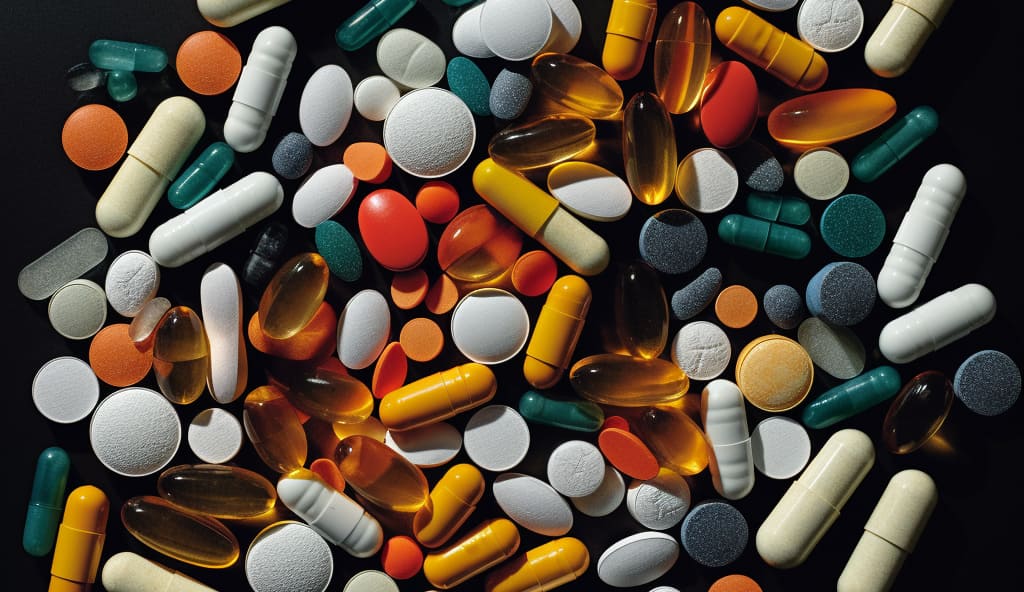Over the counter drug abuse—colloquially known as the OTC high—may have a veneer of harmlessness, but the reality is darker than one may think. Let’s look at the types of medications that are being used unconventionally and some of the dangers embedded in over the counter drug abuse.
The Emergence of OTC High
The OTC High entered the scene as a subtle but concerning phenomenon in the ever-evolving landscape of public health and drug abuse. It’s when individuals look to get a high or euphoric feeling from readily available over-the-counter medications.
Those searching for a quick escape from reality or an accessible means to alter their mood often turn to these seemingly innocuous drugs.
Common culprits in the OTC category include cough syrups containing dextromethorphan (DXM), antihistamines, pain relievers containing codeine, and even certain sleep aids. But this practice is far from safe. The potential risks associated with OTC drug abuse range from mental health to dependence and even overdose or death.
Unveiling the Hazards of Over the Counter Drug Abuse
- Health Perils: Behind the nondescript packaging of OTC medications lies a spectrum of health risks. Abusing these drugs can lead to various physical and mental health problems, encompassing liver damage, cardiovascular issues, cognitive impairment, and the ominous shadow of addiction.
- Overdose: OTC medications were never intended for consumption in excess. Overdosing on these seemingly benign substances can spiral into life-threatening situations, including respiratory failure or debilitating seizures.
- Mental Health Ramifications: An OTC High can be a catalyst for pre-existing mental health issues or the inception of new ones. The dark realities of anxiety, depression, and psychosis may lie in wait for those who underestimate the potential psychological consequences of OTC drug abuse.
- Tolerance and Dependence: As with prescription medications, OTC drugs can pave the path to tolerance, where individuals need increasingly larger doses to achieve results. This is a quick path to dependence and addiction.

Commonly Abused Over the Counter Drugs
Of course, the meds used for an OTC high are meant for good. Initially designed for legitimate medical purposes, these pharmaceuticals are repurposed for an altered state of consciousness. Here are a few more common ones, their intended use, and their unorthodox ways.
Cough Syrups with Dextromethorphan (DXM):
- Intended Use: DXM is a common ingredient in over-the-counter cough syrups primarily designed to alleviate cough symptoms.
- Unconventional Use: In search of an altered reality, people drink excessive amounts of cough syrup containing DXM for hallucinogenic effects, resulting in what is colloquially known as “robo-tripping.”
Antihistamines:
- Intended Use: Antihistamines often relieve allergy symptoms—runny nose, itchy skin, or other allergic reactions.
- Unconventional Use: Some may use these to try to induce sedation or a feeling of drowsiness.
Pain Relievers with Codeine:
- Intended Use: Pain relievers containing codeine are typically prescribed to manage moderate to severe pain.
- Unconventional Use: Seeking euphoria, individuals use codeine pain relievers (actually an opiate) in excess or crushing and snorting them to experience a narcotic high.
Sleep Aids:
- Intended Use: As the name suggests, sleep aids help people get to sleep or have a more restful sleep.
- Unconventional Use: Some use sleep aids to induce drowsiness outside the intended bedtime, often to self-medicate or escape from reality temporarily.
Decongestants:
- Intended Use: Decongestants are formulated to relieve nasal congestion caused by colds or allergies.
- Unconventional Use: Some misuse decongestants for their pseudoephedrine content in search of stimulation, attempting to achieve a sense of alertness or increased energy.
Anti-Diarrheal Medications:
- Intended Use: Anti-diarrheal medications are intended to relieve symptoms of diarrhea and gastrointestinal discomfort.
- Unconventional Use: These medications may be abused to achieve a sense of relaxation or numbness, as they can contain loperamide, which, in large doses, can have opioid-like effects.
Diet Pills and Appetite Suppressants:
- Intended Use: These products can assist in weight loss by suppressing appetite or increasing metabolism.
- Unconventional Use: Misuse involves excessive amounts to enhance energy levels or achieve a false sense of control over one’s body weight.
It is important to note that these medications were developed to help people with mild health issues. This means they are not bad medications, but misuse undermines their intended medical functions and creates significant health risks. The delicate balance between medicinal utility and potential harm underscores the complexity of OTC High and emphasizes the need for awareness and intervention.
Identifying Over the Counter Drug Abuse
Identifying OTC drug abuse can be challenging. But the signs are similar to other substance abuse disorders. Here are a few to look out for:
- Unexplained Behavioral Shifts: Abrupt changes in behavior, such as heightened irritability, restlessness, or withdrawal from social activities.
- Physical Manifestations: Physical symptoms such as dizziness, nausea, vomiting, or an unsteady gait.
- Altered Sleep Patterns: Disrupted sleep or insomnia may be a red flag signaling OTC drug abuse.
- Veiled Secrets: The person may become secretive about their activities, even defensive.
- Academic or Occupational Decline: A noticeable deterioration in performance at school or work may signal a burgeoning problem.
Getting Help
The importance of awareness and action is high when the lines between legitimate medication and abuse blur. The first step is contacting a qualified addiction treatment center like Covenant Hills. A Christian alcohol and drug treatment center in Orange County, California, our team can walk you through a free consultation about what may be necessary to treat any potential addiction and how to take the next step.
Reaching out to Covenant Hills Treatment at 800-662-2873 can be the pivotal moment that sets you on the journey to reclaiming your life. Call today.








